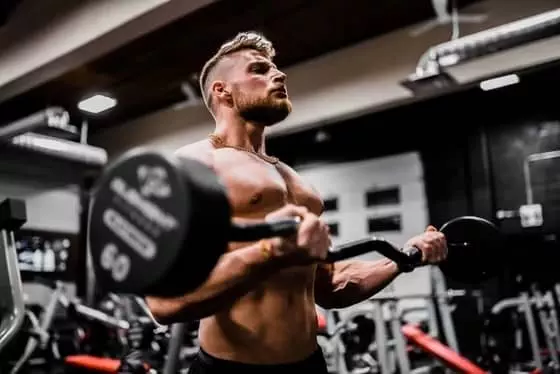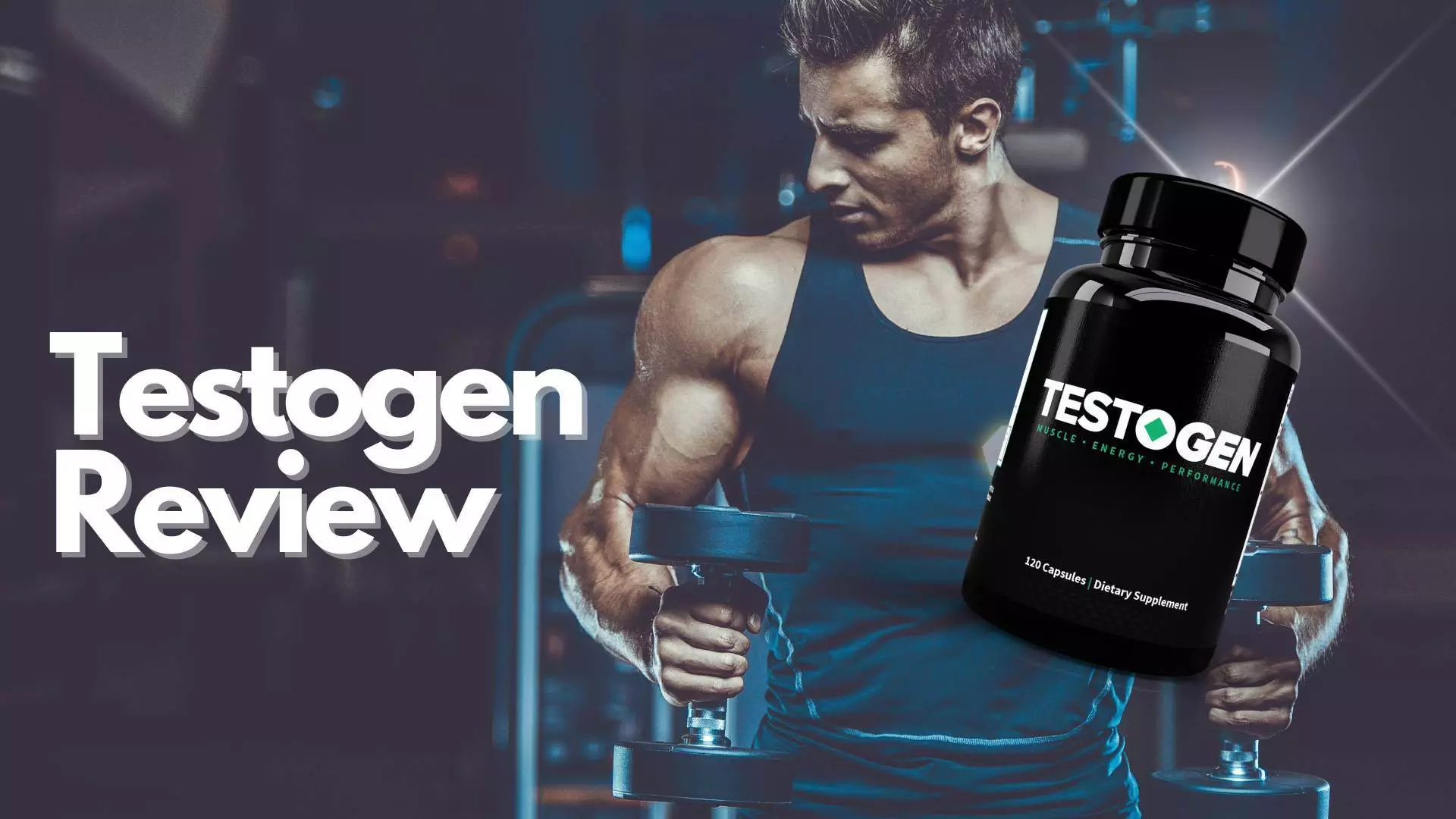There are a lot of people that fast before they work out in the morning. This is otherwise known as fasted training, and it has amazing benefits when it comes to your metabolism, energy levels, and fat burning.
The problem is that performing intense exercise during a fasting window can often leave you struggling with muscle soreness, reduced energy levels, and much more post-workout – particularly if you’re in a calorie deficit.
Luckily, a high-quality BCAA (Branched-Chain Amino Acids) supplement can make a huge difference when it comes to boosting muscle protein synthesis, the prevention of muscle breakdown, and energy production.
So, if you’re someone who likes to train while fasting and looking to get the best bang for your buck out of your training, you may be on the lookout for the best BCAA for fasted training. If so, you’ve come to the right place.
What are BCAAs?
BCAAs are the three amino acids: leucine, isoleucine and valine. They’re nicknamed Branched-Chain Amino Acids because of their structural similarity to a branch in chemistry diagrams.
BCAAs can’t be made by your body, so you must consume them through food or supplementation daily. They aid in muscle protein synthesis, recovery, and are used as an energy source during exercise.
You can find BCAA in quality whey proteins, egg whites, and beef, but since such sources aren’t suitable for those following a vegan diet, supplementation is a more practical solution.
As you can see, BCAAs play a major role in your workout routine, which is why the best BCAA product for fasted training must be efficient. Otherwise, you may not be able to reap the full benefits that come along with fasted training.
What is Fasted Training?
Fasted training is a unique (albeit slightly controversial) way to get your body in the perfect state for exercise. It’s exactly what it sounds like; you train fasted, without having consumed any food or drink before working out.
There are many benefits to fasted training which we will discuss below. But first, let’s talk about why you might want to train this way:
- Fasting promotes fat loss – It ramps up adrenaline and catecholamines (hormones that help break down fat). It also optimizes insulin sensitivity for muscles so they can use what little carbohydrates are present more efficiently.
- Boosts mental clarity and energy – If you’re a “slow” person who struggles to get out of bed early enough for morning workouts, then fasted training may be perfect for you! This is because when fasting from food overnight, your body releases more of its own energy stores (fat) to power you through your morning workout.
- May reduce muscle catabolism – Muscle is sensitive to the breakdown that occurs with lack of food in your system. Thankfully, fasted training has been shown to help reduce muscle catabolism due to the body’s increased reliance on fat as an energy source.
Fasted workouts can be great both ways – some people love it and agree that they’re highly beneficial while others think they are incredibly detrimental to athletic performance. Depending on what type of exercise you do, fasting could work well for you!
What are the Benefits of BCAAs for Fasted Training?
If you’re not eating any food before your workout, that means there’s no protein for the muscles to use during your session. The body responds by breaking down muscle tissue, which can lead to less muscle growth and weaker performance.
BCAAs are an energy source, so they provide fuel for a fasted workout. They are also used as an essential building block for muscle tissue, which is why BCAA supplements can help with recovery and strength gains after a fasted exercise session.
The last thing you want after a tough workout is to feel fatigued, exhausted, and hungry. That’s why your chosen BCAA supplement should be taken before your fasted workout to maximize the benefits of a fasted training session.
What Makes A Good BCAA Supplement?
You’ll now know that there are many benefits of taking BCAA supplements, but it’s important to remember that not all BCAA supplements are created equally.
If you’re on a tight budget, you may be tempted to choose the cheapest BCAA supplement you can find.
However, this can often prove to be a mistake. The cheapest BCAA supplements are often made with inferior ingredient forms including synthetic additives and do not deliver the same benefits as more expensive, high-quality brands of BCAA.
As you’re shopping for your next batch of BCAA supplements, it’s important to keep in mind that cheaper is usually not better when it comes to reaping the rewards of BCAA supplementation.
It’s also worth noting that BCAA supplements are available in powder form or as capsules; I’d recommend the latter, as they’re far more convenient when it comes to reaching your ideal daily intake of BCAAs.
Best BCAA For Fasted Training: FAQs
Can You Take BCAAs While Intermittent Fasting?
Yes, you can take a BCAA supplement while intermittent fasting. Research has shown that fasted training is beneficial for weight loss and muscle gain because it boosts your metabolism.
But to maximize the benefits of a fasted workout session, it’s worthwhile taking BCAAs as this will allow you to train for longer and reduces fatigue during workouts, ensuring you’ll get a great workout even if you’re low on energy.
Do BCAAs Build Muscle Faster?
No, BCAA supplements aren’t designed to help you build muscle faster. But what it can do is enhance muscle protein synthesis, which aids in the muscle-building process. This makes it an incredibly beneficial supplement for fasted training, especially as it helps to prevent muscle loss.
Will BCAA Break Ketosis?
No, BCAA supplements will not break ketosis. However, they can interact with insulin levels and potentially cause a higher blood sugar level and glucose in the liver – which could lead to breaking ketosis over time if you don’t take them when desired or needed.
Should I Take BCAA Every Day?
BCAAs are likely to benefit you most when you take them pre-workout or fasted. And while some BCAA supplements aren’t designed to be taken everyday, products like Performance Lab BCAA are designed for safe long-term daily use, allowing you to reap the rewards that come along with regular BCAA consumption.
Does BCAA Increase Testosterone?
BCAA supplements don’t increase testosterone. However, they can positively affect the muscle-building process and protein synthesis which could lead to higher levels of natural growth hormone (hGH), which in turn is linked with increased testosterone production.
Is BCAA Better Than Creatine?
BCAA supplements are recommended for fasted training. Unlike creatine, they don’t cause water retention and bloating, which can be helpful to those who have a hard time managing their weight or suffer from pre-workout stomach issues like diarrhea or nausea.
Are BCAAs Better Than Protein Powder?
BCAA supplements are specifically designed to promote muscle growth and recovery. Protein powders, on the other hand, come in many different forms such as pea, brown rice, and whey protein, and can serve a variety of purposes including helping you reach your daily protein intake more easily. However, they aren’t necessarily going to be as focused on fasted training like BCAA products will.
Are BCAAs Vegan?
BCAA supplements are generally vegan-friendly, but there’s a chance that a product you’re interested in buying might not be. As a result, you should always double check the ingredients list before purchasing.
Final Thoughts on the Best BCAA For Fasted Training
That concludes my complete guide to the best BCAA for fasted training! By this point, you should have a good understanding of what fasted training is and why it’s beneficial to you, as well as the benefits of Branched-Chain Amino Acid supplementation.
In summary: Training in an overnight fasted state (less than six hours for men) can help promote lean muscle mass growth, fat loss, increased strength gains, greater endurance capacity, and much more.
It all comes down to personal preference, but if you’re someone who likes to train fasted or are considering it, BCAA supplements have the potential to benefit you greatly in terms of building muscle after resistance training while also boosting muscle recovery.





Leave a Reply